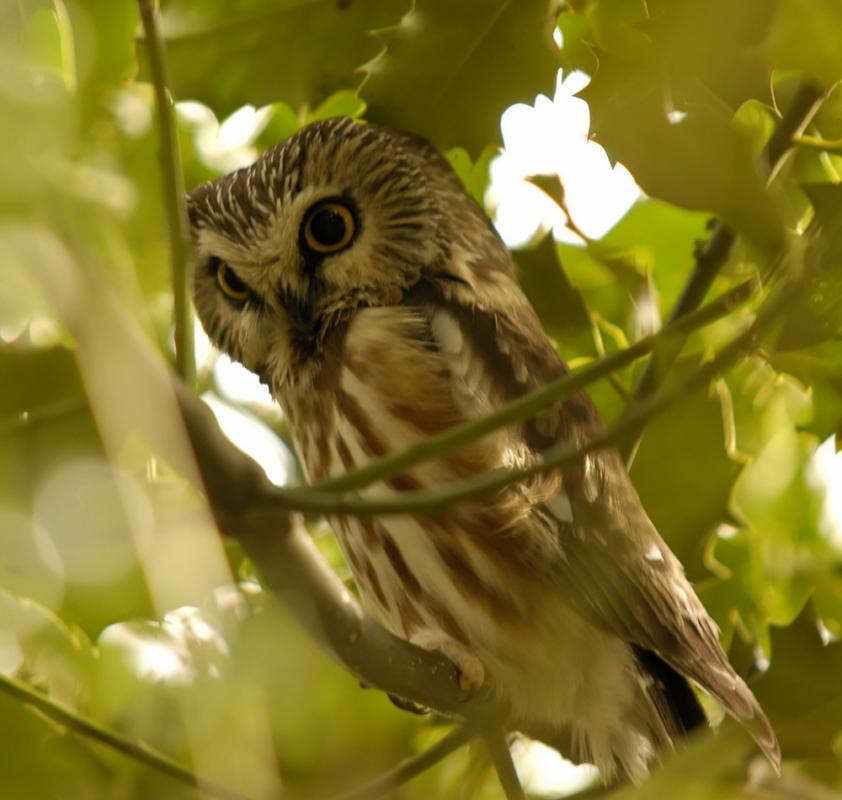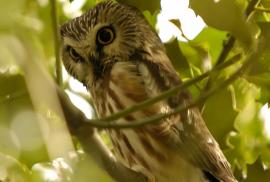Guide to Boreal Birds
Overview
Northern Saw-whet Owls are almost entirely nocturnal, spending the day roosting quietly in dense foliage. At such times, they are extraordinarily tame and may be approached closely or even handled. At night this tiny owl becomes a rapacious hunter, preying on large insects, mice, and other small rodents. Though widespread in Canada and all of the northern and western United States, its distribution is spotty. This pattern may be attributable to uneven or inadequate food supplies in areas with severe winter conditions.
Description
7" (18 cm). A very small, earless, yellow-eyed owl; brown above, with white streaks on forehead, dark bill, and short tail. Juveniles are chocolate-brown above, buff below, with white triangle on forehead extending between eyes. See Boreal Owl.
Voice
Usually silent; in late winter and spring utters monotonous series of tooting whistles.
Nesting
5 or 6 white eggs placed without a nest lining in a deserted woodpecker hole or natural cavity.
Habitat
Coniferous woodlands; in winter also in evergreen thickets in parks, gardens, and estates; also isolated pines.
Range/Migration
Breeds from southeastern Alaska, Manitoba, and Nova Scotia south to southern California, Arizona, Illinois, North Carolina (in mountains), and Connecticut. Winters in breeding range and south to Arkansas and North Carolina.



